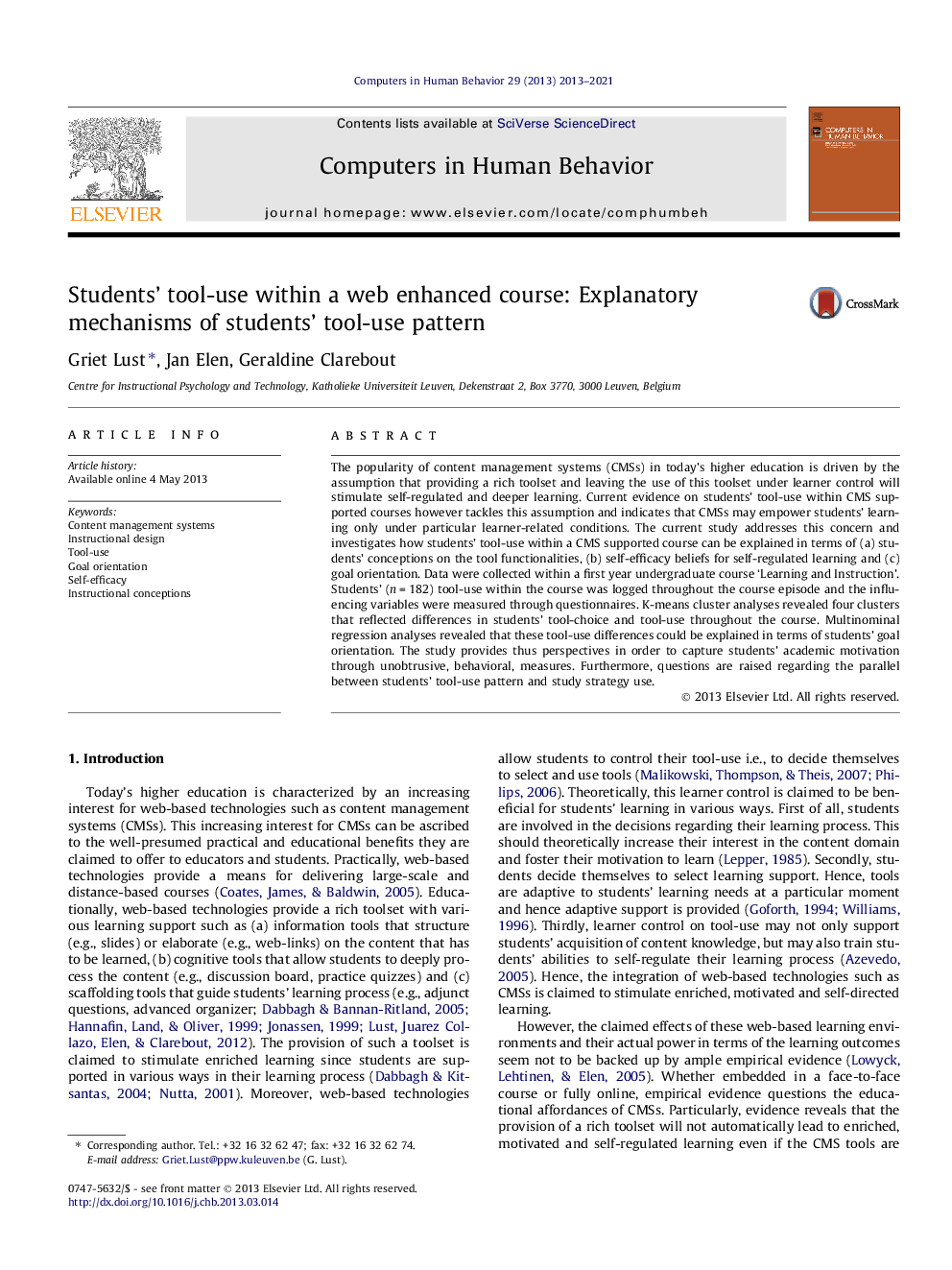| Article ID | Journal | Published Year | Pages | File Type |
|---|---|---|---|---|
| 350912 | Computers in Human Behavior | 2013 | 9 Pages |
•Research focusing on students’ tool-use and the influencing student variables.•Four clusters that reflect differences in tool-choice and tool-use.•Significant impact of goal orientation on students’ tool-use pattern.•No effect of self-efficacy and instructional conceptions on students’ tool-use pattern.
The popularity of content management systems (CMSs) in today’s higher education is driven by the assumption that providing a rich toolset and leaving the use of this toolset under learner control will stimulate self-regulated and deeper learning. Current evidence on students’ tool-use within CMS supported courses however tackles this assumption and indicates that CMSs may empower students’ learning only under particular learner-related conditions. The current study addresses this concern and investigates how students’ tool-use within a CMS supported course can be explained in terms of (a) students’ conceptions on the tool functionalities, (b) self-efficacy beliefs for self-regulated learning and (c) goal orientation. Data were collected within a first year undergraduate course ‘Learning and Instruction’. Students’ (n = 182) tool-use within the course was logged throughout the course episode and the influencing variables were measured through questionnaires. K-means cluster analyses revealed four clusters that reflected differences in students’ tool-choice and tool-use throughout the course. Multinominal regression analyses revealed that these tool-use differences could be explained in terms of students’ goal orientation. The study provides thus perspectives in order to capture students’ academic motivation through unobtrusive, behavioral, measures. Furthermore, questions are raised regarding the parallel between students’ tool-use pattern and study strategy use.
